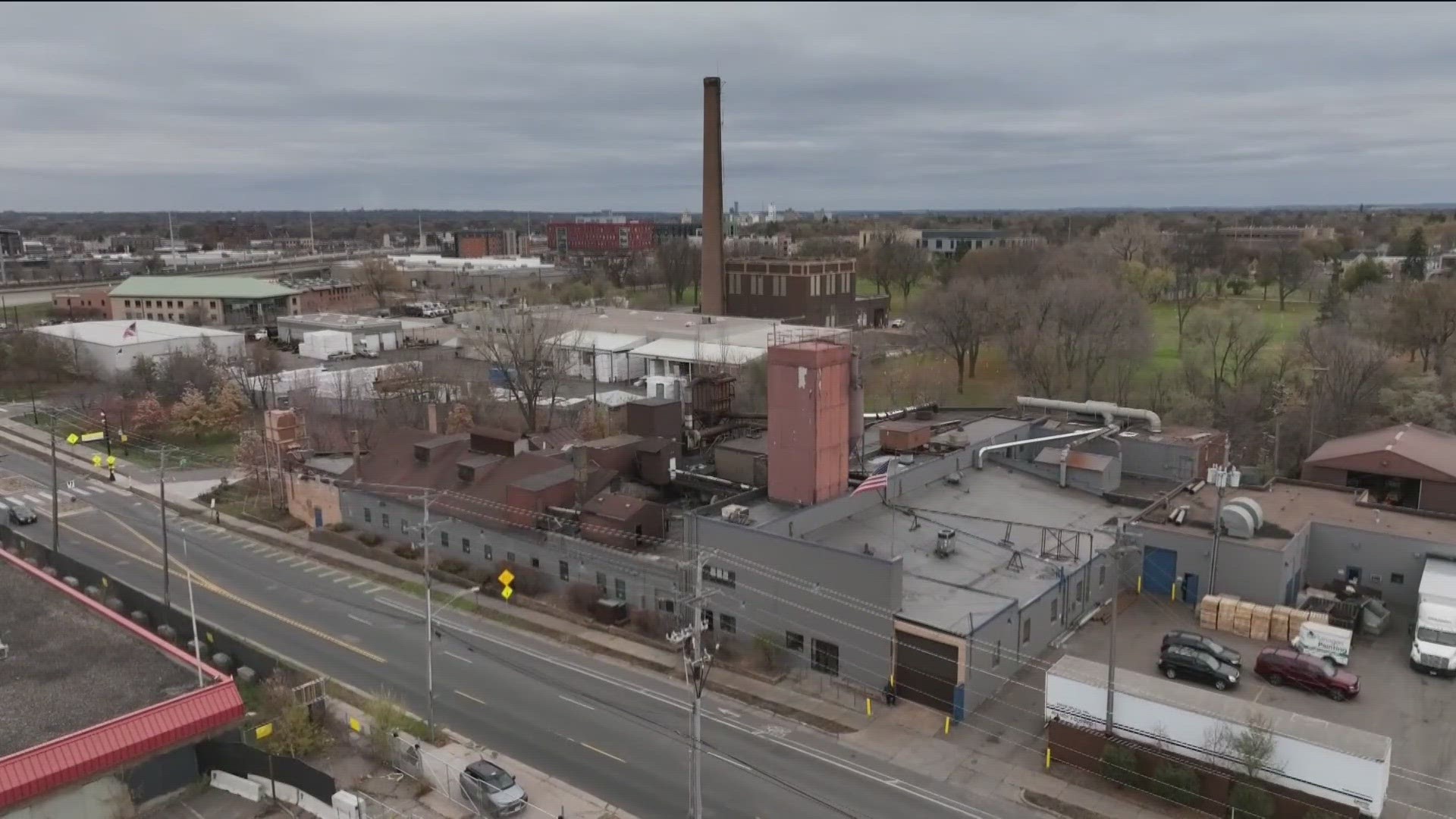MINNEAPOLIS — The latest air quality tests on the Smith Foundry show it's in compliance with the particulate pollution limits spelled out in its current permit, but neighborhood groups and environmental activists still want the state to shut it down.
The Minnesota Pollution Control Agency has scheduled two public meetings Wednesday to share the latest information the agency's efforts to bring the century-old foundry into compliance, and to investigate the findings of an EPA inspection conducted last May.
Those meetings are set for 3 p.m. and 6:30 p.m. at the East Phillips Park Cultural & Community Center at 2307 17th Ave South in Minneapolis. The same presentation from the afternoon meeting will be shared at the evening session.
The MPCA posted a video on YouTube showing a contractor conducting the "stack test" at Smith Foundry. Those results eventually came back showing that the plant's particulate pollution emissions are below the limit set in its air permit. The test also showed some lead emissions, but at a very low level.
"The Minnesota Pollution Control Agency and the U.S. Environmental Protection Agency are working together to protect the health and safety of Minnesotans and their communities," read a joint statement from the MPCA and the EPA.
"The MPCA continues to coordinate with EPA as part of the ongoing investigation of Smith Foundry. The December 2023 stack test provides the community, EPA, and MPCA with actual measured levels of emissions from several of the operations at the facility. The results verify that Smith Foundry is compliant with its permit limits for particulate matter at those operations."
Adolfo Quiroga, the Smith Foundry president, issued the following statement:
"I want people to know that we are committed to ensuring clean air and providing people in Minneapolis, including the East Philips neighborhood, with well-paying, good union jobs. I believe that the test results and the repairs, improvements and investments we’ve made since purchasing Smith Foundry 13 months ago demonstrate that commitment. We look forward to continuing to work with state and federal regulators and engage with the community as we continue to complete our application for a new air permit."
A coalition of environmental safety advocates and neighborhood groups continues to press the state to shut down the 100-year-old foundry, contending the emissions have had the cumulative effect of causing health issues in the surrounding areas.
"When you come in with a stack test everybody knows what’s going to happen. So, the company knows, the EPA knows, all the contractors, third-party contractor knows," Evan Mulholland of the Minnesota Center for Environmental Advocacy told KARE.
"So, it’s no surprise everything was working well at the time. But what we were surprised at was the amount of lead. They said they were expecting no lead, they don’t use lead in their castings, but still they’ve got a real amount of lead coming out every day."
Mulholland also pointed out the plant's air pollution limits are based on the standards that were in place when the MPCA permit was issued in the 1990s. The plant, under new ownership, has been attempting to gain a new permit.
The opposition groups said they felt vindicated by the EPA's May inspection, which found particulate emissions were double what was allowed, that some of the pollution monitoring equipment was in disrepair and that the foundry failed to produce logs of their emission monitoring.
The EPA found the foundry in violation of its permits and noted that particulate pollution has been linked to asthma and a variety of other ailments.
"I really think there’s more pollution coming out than what they’re saying or guessing," Cassandra Holmes of the East Phillips Neighborhood Institute, told KARE.
"So, the fact the entity came out saying they’re within the guidelines is upsetting because our community is literally burying children from environmental injustice."
Holmes's son Trinidad Flores died in 2013 at the age of 16 from a heart ailment. She blames the cumulative pollution from all the industrial sites in the area, including the foundry.
The foundry is next door to an asphalt plant, part of an industrial corridor along Hiawatha Avenue that once included a pesticide plant that handled large quantities of arsenic.

